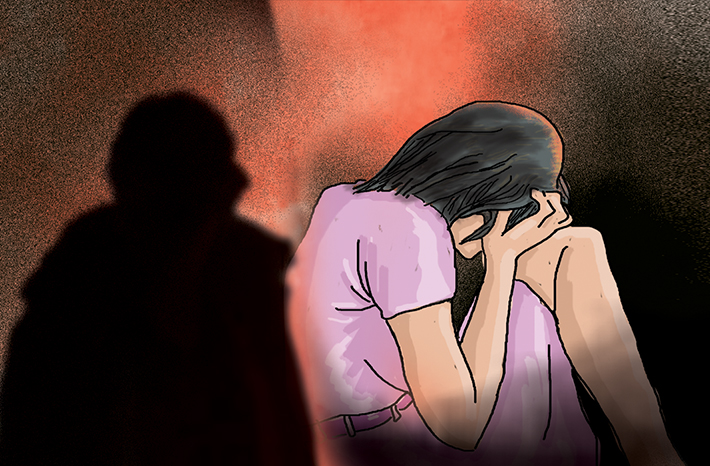A dangerous practice, curiously known as “marry your rapist,” being packaged as a solution to the social malaise called rape, must be stopped immediately. Otherwise, the world might just be opening an unstoppable floodgate of attack dogs that will be unleashed on women and girls, who will then be handed over to them as rewards in the name of marriage.
Ordinarily, the word rape, the nonconsensual carnal knowledge of a female person by a male person, invokes a sense of dehumanisation that only the victim can best explain. Beyond murder, rape is perhaps the worst form of maltreatment that a woman or girl can be subjected to. It takes away her fundamental sense of pride, womanhood, and dignity, and once that act is done, there is hardly anything that can be done to restore it or erase the memory of the loss.
The agonizing aspect of rape is that the victim is condemned to live the rest of her life with a negative memory of the irreparable theft of her virtue. In some cases, this experience leaves the woman with a different identity of herself, as a mere object that can be vandalized by another human being. This is why a whole industry has sprung up around the problem of post-rape trauma, as professionals try to rehabilitate victims of this sexual exploitation.
While 20 countries in the world have legal provisions for the harmful practice that allows men to escape criminal prosecution if they marry the girls or women they raped, in Nigeria, all instances of rape are criminal. Sections 358 of the Criminal Code and 283 of the Penal Code used in the southern and northern parts of the country respectively provide a maximum sentence of life imprisonment for anyone convicted of rape.
Zainab Atoba, the former chairperson of the Federation of Women Lawyers (FIDA) in Kaduna State, said despite the provision of the law, “an aberration such as girls being forced to marry their rapists still takes place at the family and community levels”.
Naira scarcity: Death figures spike in hospitals
I am not a radical priest by choice — Cardinal Onaiyekan
Last October, the Sexual Offences Awareness and Response (SOAR), a Lagos-based non-governmental organisation, raised the alarm that some families were marrying off adolescent girls to their rapists.
Kabir Momoh, a constitutional and administrative legal practitioner at Abdullahi Ibrahim and Co chambers in Kaduna State, in the report, said such arrangements are traditionally meant to ‘shield’ a victim’s family from the rape scandal and ‘protect’ the victim from the ‘temptation of pre-marital sex, but added that it violates the victim’s rights and provides opportunity for alleged criminal offenders to escape justice.
Indeed the ‘marry your rapist” practice is hinged in part on the claim that if the victim refuses to marry the rapist, there may not be any other person to marry her because of stigmatization that comes with rape. Stigmatization makes families of rape victims shy away from reporting such incidents and therefore makes it difficult for the perpetrators to be prosecuted. In lieu of such legal action, this doctrine proposes a quiet resolution of the matter in favour of the offender. Strange enough, it is the parents and close relations of the victims who expound this practice, in the name of protecting the image of the family.
There is everything wrong with this argument and we, at Daily Trust, condemn it in its entirety. It amounts to rewarding bad behaviour or crime. Once it kicks in, the inevitable consequence is that rape cases will increase, with offenders knowing that all it will cost them is to agree to marry their victims. Nothing can be more primitive than this in the third decade of the 21st century.
The practice will subject the victims of rape to double dehumanization. How will a lady who was raped be compelled to live under the same roof, for the rest of her life, with the man who humiliated her in the most unconscionable manner?
Victims struggle to live with the shame of rape, and some do in fact take their lives. Enforcement of this practice of marrying one’s rapist is bound to escalate the number of cases of suicide among the victims.
We, hereby, call for the effective enforcement of laws against rape in all countries, including Nigeria. Most countries view rape as a social problem, with different countries having varying legislation regarding punishment for the offence. Unfortunately, the challenge lies with the enforcement of such laws. In Nigeria, based on the provisions of the Violence Against Persons (Prohibition) Act 2015, the government has set a minimum punishment for rape as 12 years’ imprisonment without the option of a fine, while the maximum punishment is life imprisonment. For an offender less than 14 years, the Act prescribes a maximum punishment of 14 years’ imprisonment. The Act also prescribes that in the case of a group or gang rape, the offenders shall be jointly liable to a minimum of 20 years’ imprisonment.
The Act also provides that the names of sexual offenders are to be kept in a register, which shall be made public. These are the least punishments for the crime of rape and must be enforced. Nigeria must not legitimize rape by other means.

 Join Daily Trust WhatsApp Community For Quick Access To News and Happenings Around You.
Join Daily Trust WhatsApp Community For Quick Access To News and Happenings Around You.


